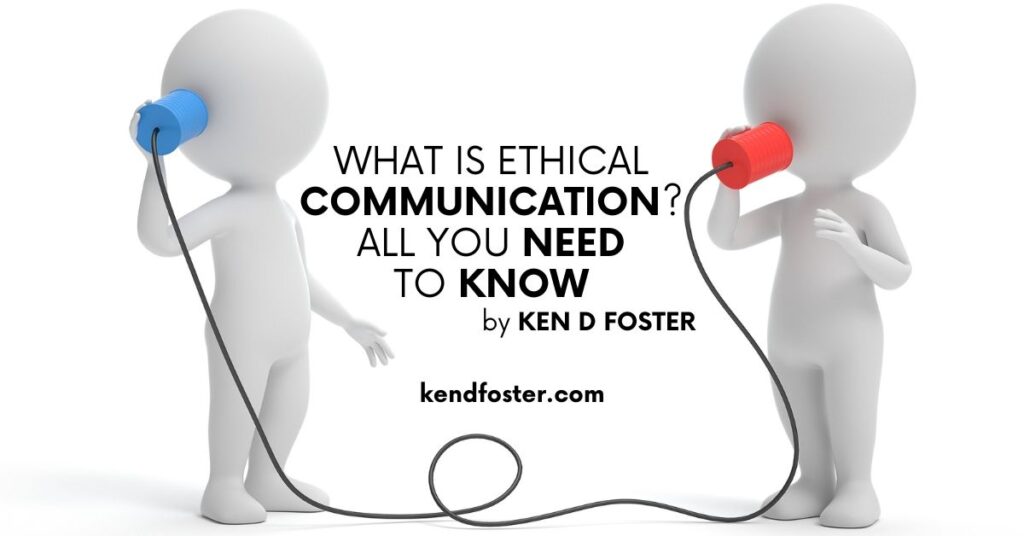
Communication is the backbone of modern business. It helps interact with customers, build relationships, and boost sales. However, not all communication is equal. In this article, let’s discuss in detail about ethical communication and explore how it’ll impact the long-term success of a business.
What Is Ethical Communication?
Ethical communication is an honest, transparent, and respectful way of exchanging information within a company, with customers, or between businesses. It promotes positive relationships and helps to build trust.
Principles of Ethical Communication
1. Honesty and Transparency
Honesty and transparency are one of the fundamental principles of ethical communication. You need to be honest when promoting products. If not, you may get customers initially, but in the long run, you’ll fail.
Besides being honest with customers, it’s also necessary that you be transparent with the stakeholders so they continue to invest in your business.
2. Understand Your Audience
Understanding your audience is like throwing a surprise party — you need to know who likes what. Tailor your message to fit your audience’s needs and interests.
The way you design and structure your message also matters. For instance, a teenager may prefer a conversational tone with emojis, whereas a business client may prefer a more formal tone.
3. Respect Privacy
Nobody wants their privacy to be violated. Whether it’s a personal conversation with a customer or a sensitive stakeholder- or investor-related information, it’s necessary that you keep them confidential. When people know you keep things private, they will trust you.
4. Selecting the Right Time and Place
When and where you share information is crucial to ethical communication. A company crisis meeting isn’t a place to share your personal story. Is it?
You need to share your message where it has the best chance of being heard and understood. Remember, it’s not just what you say; it’s about when and where you say it.
Importance of Ethical Communication
1. Build Trust
Trust is crucial for business success, and ethical communication is like the currency of trust — it’s about being truthful, keeping promises, and being reliable.
When you communicate ethically, you provide truthful and accurate information, which helps build trust, creating a foundation for strong and lasting connections.
2. Create a Positive Workplace Culture
Ethical communication plays a crucial role in shaping the culture of a workplace. When communication is fair, and others’ perspectives and feelings are acknowledged, it contributes to a positive work environment, which boosts employee morale, engagement, and overall satisfaction.
When employees communicate respectfully, they create an atmosphere where everyone feels valued and heard, fostering a sense of dignity and equality.
3. Resolve Conflicts
Conflicts are inevitable for a business, but how you handle them is what matters. Ethical communication involves addressing conflicts constructively. Instead of blaming others, engage in honest and respectful discussions to understand the perspective of the employee or stakeholder and come up with a mutual solution.
If you find out that there’s a widespread issue with your product, request a recall. It’s challenging, but you’ll gain customer trust and build credibility in the long run.
4. Build Positive Relationships
Ethical communication is the glue that binds positive relationships. It includes active listening, empathy, and understanding, which helps you build and maintain positive relationships with customers and stakeholders.
5. Legal Compliance
Ethical communication ensures that you stay on the right side of the law. Providing accurate information, respecting confidentiality, and avoiding deceptive practices with both customers and stakeholders can help you avoid legal pitfalls.
Conclusion
Ethical communication is crucial for the success of a business. By communicating honestly, transparently, and respectfully, you can gain the trust and loyalty of stakeholders and customers.
Remember that ethical communication isn’t just a set of rules to follow; it’s a mindset that permeates the entire organizational culture.
Want to 2x your profit? Book a coaching session with Ken. With over 30 years of experience, Ken will thoroughly analyze your business and suggest effective changes for growth. Ken has contributed to the success of hundreds of entrepreneurs.
Ken D Foster is a best-selling author, transformational leader, business strategist, and producer of the Voices of Courage Show, syndicated in 185 countries.



